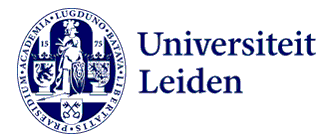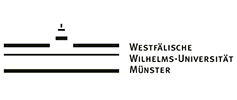Islamic Constitutionalism: Social Movement and the Framework of the Indonesian Constitution
DOI:
https://doi.org/10.31078/consrev726Keywords:
Constitution, Islamic Constitutionalism, Islamic Social MovementAbstract
The main purpose of this article is to discuss Islamic constitutionalism in the context of Indonesian social movements. Constitutionalism is part of the study of constitutional law when the discussion focuses on the concept of limiting the power of the government. Using historical and sociological approaches, this article examines socio-political circumstances in Muslim society and their relationship to the spirit of constitutionalism in Indonesia. Indonesia does not explicitly name any particular religion in its Constitution, even though most of its population is Muslim. After a series of constitutional reforms over 1999– 2002, there was no formalization of Islam in the Constitution. Two important academic questions arise when dealing with this phenomenon. First, to what extent are Indonesia’s religious social movements involved in constructing the narrative of constitutionalism? Second, how do the spirit of constitutionalism and Islam play a role in strengthening Indonesia’s Constitution? This article notes that some Muslims in Indonesia have been striving to build a narrative of Islamic constitutionalism through social movements since the nation’s pre- independence era. Nevertheless, this Islamic constitutionalism has not resulted in the formalization of an Islamic constitution in Indonesia due to several factors: the historical roots of the nation’s establishment, the pluralist stance of Indonesia’s mainstream civil Islamic movements, and the presence of the Pancasila as the state ideology. This article also reveals that Indonesia’s Muslim majority and religious authorities play a role in building the spirit of constitutionalism; however, the formalization of a specific religion as the basis of the constitution has never been realized in Indonesia.References
Ahyar, Muzayyin. “Islamic Clicktivism: Internet, Democracy and Contemporary Islamist Activism in Surakarta.” Studia Islamika 24, no. 3 (December 31, 2017): 435–68. https://doi.org/10.15408/sdi.v24i3.4859.
Alfitri, Alfitri. “Putusan Mahkamah Konstitusi sebagai Tafsiran Resmi Hukum Islam di Indonesia [Constitutional Court Decisions as an Official Interpretation of Islamic Law in Indonesia].” Jurnal Konstitusi 11, no. 2 (May 20, 2016): 296–314.
Al-Habib Muhammad Rizieq bin Husein Syihab. Wawasan Kebangsaan Menuju NKRI Bersyariah [National Insight toward a Unitary State of the Republic of Indonesia with Islamic Law], 1st edition. Jakarta: Suara Islam Press, 2012.
Al-Hibri, Azizah. “Islamic Constitutionalism and the Concept of Democracy.” Case Western Reserve Journal of International Law 24, no. 1 (1992).
Andrews, William G. Constitutions and Constitutionalism. New Jersey: Van Nostrand Company, 1986.
Aribowo. Peta Teori Gerakan Sosial [Map of Social Movement Theory]. Surabaya: Airlangga University Press, 2020.
Armia, Muhammad Siddiq. “Implementing Islamic Constitutionalism: How Islamic Is Indonesia Constitution?” Al-’Adalah 15, no. 2 (2018): 437–50.
Asshiddiqie, Jimly. Pengantar Ilmu Hukum Tata Negara [Introduction to Constitutional Law] (Jakarta: Sekretariat Jenderal dan Kepaniteraan Mahkamah Konstitusi RI, 2006.
Barton, Greg. Jemaah Islamiyah: Radical Islamism in Indonesia. NUS Press, 2005.
Burhani, Najib. Plural Islam and Contestation of Religious Authority in Indonesia, 2018. https://www.academia.edu/36865699/Plural_Islam_and_contestation_ of_religious_authority_In_Indonesia.
Carnegie, Paul J. “Democratization and Decentralization in Post-Soeharto Indonesia: Understanding Transition Dynamics.” Pacific Affairs 81, no. 4 (2009).
Duraesa, Muhammad Abzar and Muzayyin Ahyar. “Reproliferation of Islamist Movement in Surakarta: Trajectory and Strategy in the Post Democratization Indonesia.” DINIKA: Academic Journal of Islamic Studies 4, no. 2 (December 19, 2019). https://doi.org/10.22515/dinika.v4i2.1637.
Gellner, Ernest. Nations and Nationalism. Cornell University Press, 2008.
Ghofur, Abdul. Demokratisasi dan Prospek Hukum Islam di Indonesia: Studi Atas Pemikiran Gus Dur [Democratization and the Prospect of Islamic Law in Indonesia: A Study of Gus Dur’s Thoughts] (Yogyakarta: Walisongo Press and Pustaka Pelajar Press, 2002).
Gouda, Moamen. “Islamic Constitutionalism and Rule of Law: A Constitutional Economics Perspective.” Constitutional Political Economy 24 (March 1, 2013). https://doi.org/10.1007/s10602-012-9132-5.
Huda, Ni’matul. Desentralisasi Asimetris dalam Negara Kesatuan Republik Indonesia: Kajian terhadap Daerah Istimewa, Daerah Khusus, dan Otonomi Khusus [Asymetrical Desentralization in the Unitary State of the Republic of Indonesia: A Study of Extraordinary Regions, Special Regions and Special Autonomy]. Bandung: Nusa Media, 2014.
Huda, Ni’matul. Hukum Tata Negara Indonesia [Indonesian Constitutional Law]. Depok: Raja Grafindo Persada, 2005.
Jufri, Muwaffiq. “Urgensi Amandemen Kelima pada Undang-Undang Dasar Negara Republik Indonesia Tahun 1945 Terkait Hak dan Kebebasan Beragama [The Urgency of a Fifth Amendment to the Indonesian Constitution on Rights and Freedom of Religion].” Jurnal HAM 12, no. 1 (April 22, 2021): 123–40. https://doi.org/10.30641/ham.2021.12.123-140.
Lubis, Ali Akhbar Abaib Mas Rabbani and Syaiful Bahri. “NKRI Bersyariah: Praktik Spasial, Representasi Ruang, Ruang Representasional [Sharia Unitary State of the Republic of Indonesia: Spatial Practice, Space Representation and Representational Space].” Al-Daulah: Jurnal Hukum dan Perundangan Islam 10, no. 2 (October 3, 2020). https://doi.org/10.15642/ad.2020.10.2.222-250.
Mcllwain, Charles Howard. Constitutionalism: Ancient and Modern. New York: Cornell University Press, 1966.
Muhtada, Dani. Law and Local Politics: The Diffusion of Sharia Regulations in Indonesia. Semarang: Badan Penerbit Fakultas Hukum Universitas Negeri Semarang, 2017.
Tarrow, Sidney G. Power in Movement: Social Movements and Contentious Politics. Cambridge: Cambridge University University Press, 2011.
Tilly, Charles, Ernesto Castaneda and Lesley J. Wood. Social Movements 1768- 2012. Oxfordshire: Routledge, 2015.
Walker, Neil. “The Idea of Constitutional Pluralism.” The Modern Law Review 65, no. 3 (2002).
Watt, William Montgomery. Muhammad: Prophet and Statesman. Oxford: Oxford University Press, 1961.
Wiktorowicz, Quintan. Islamic Activism: A Social Movement Theory Approach. Bloomington: Indiana University Press, 2004.
Wiktorowicz, Quintan, The Management of Islamic Activism: Salafis, the Muslim Brotherhood, and State Power in Jordan. New York: SUNY Press, 2001.
Yamin, Mohammad. Himpunan Risalah Sidang-Sidang Badan Penyelidik Usaha Persiapan Kemerdekaan Indonesia Dan Panitia Persiapan Kemerdekaan Indonesia Yang Berhubungan Dengan Penyusunan Undang-Undang Dasar 1945 [The Compilation of Minutes of Plennary Sessions in the Investigating Committee for the Preparation for Indonesian Independence and the Committee of Indonenesian Independence Preparation]. Jakarta: Sekretariat Negara Republik Indonesia, 1959.
Alfitri, Alfitri. “Putusan Mahkamah Konstitusi sebagai Tafsiran Resmi Hukum Islam di Indonesia [Constitutional Court Decisions as an Official Interpretation of Islamic Law in Indonesia].” Jurnal Konstitusi 11, no. 2 (May 20, 2016): 296–314.
Al-Habib Muhammad Rizieq bin Husein Syihab. Wawasan Kebangsaan Menuju NKRI Bersyariah [National Insight toward a Unitary State of the Republic of Indonesia with Islamic Law], 1st edition. Jakarta: Suara Islam Press, 2012.
Al-Hibri, Azizah. “Islamic Constitutionalism and the Concept of Democracy.” Case Western Reserve Journal of International Law 24, no. 1 (1992).
Andrews, William G. Constitutions and Constitutionalism. New Jersey: Van Nostrand Company, 1986.
Aribowo. Peta Teori Gerakan Sosial [Map of Social Movement Theory]. Surabaya: Airlangga University Press, 2020.
Armia, Muhammad Siddiq. “Implementing Islamic Constitutionalism: How Islamic Is Indonesia Constitution?” Al-’Adalah 15, no. 2 (2018): 437–50.
Asshiddiqie, Jimly. Pengantar Ilmu Hukum Tata Negara [Introduction to Constitutional Law] (Jakarta: Sekretariat Jenderal dan Kepaniteraan Mahkamah Konstitusi RI, 2006.
Barton, Greg. Jemaah Islamiyah: Radical Islamism in Indonesia. NUS Press, 2005.
Burhani, Najib. Plural Islam and Contestation of Religious Authority in Indonesia, 2018. https://www.academia.edu/36865699/Plural_Islam_and_contestation_ of_religious_authority_In_Indonesia.
Carnegie, Paul J. “Democratization and Decentralization in Post-Soeharto Indonesia: Understanding Transition Dynamics.” Pacific Affairs 81, no. 4 (2009).
Duraesa, Muhammad Abzar and Muzayyin Ahyar. “Reproliferation of Islamist Movement in Surakarta: Trajectory and Strategy in the Post Democratization Indonesia.” DINIKA: Academic Journal of Islamic Studies 4, no. 2 (December 19, 2019). https://doi.org/10.22515/dinika.v4i2.1637.
Gellner, Ernest. Nations and Nationalism. Cornell University Press, 2008.
Ghofur, Abdul. Demokratisasi dan Prospek Hukum Islam di Indonesia: Studi Atas Pemikiran Gus Dur [Democratization and the Prospect of Islamic Law in Indonesia: A Study of Gus Dur’s Thoughts] (Yogyakarta: Walisongo Press and Pustaka Pelajar Press, 2002).
Gouda, Moamen. “Islamic Constitutionalism and Rule of Law: A Constitutional Economics Perspective.” Constitutional Political Economy 24 (March 1, 2013). https://doi.org/10.1007/s10602-012-9132-5.
Huda, Ni’matul. Desentralisasi Asimetris dalam Negara Kesatuan Republik Indonesia: Kajian terhadap Daerah Istimewa, Daerah Khusus, dan Otonomi Khusus [Asymetrical Desentralization in the Unitary State of the Republic of Indonesia: A Study of Extraordinary Regions, Special Regions and Special Autonomy]. Bandung: Nusa Media, 2014.
Huda, Ni’matul. Hukum Tata Negara Indonesia [Indonesian Constitutional Law]. Depok: Raja Grafindo Persada, 2005.
Jufri, Muwaffiq. “Urgensi Amandemen Kelima pada Undang-Undang Dasar Negara Republik Indonesia Tahun 1945 Terkait Hak dan Kebebasan Beragama [The Urgency of a Fifth Amendment to the Indonesian Constitution on Rights and Freedom of Religion].” Jurnal HAM 12, no. 1 (April 22, 2021): 123–40. https://doi.org/10.30641/ham.2021.12.123-140.
Lubis, Ali Akhbar Abaib Mas Rabbani and Syaiful Bahri. “NKRI Bersyariah: Praktik Spasial, Representasi Ruang, Ruang Representasional [Sharia Unitary State of the Republic of Indonesia: Spatial Practice, Space Representation and Representational Space].” Al-Daulah: Jurnal Hukum dan Perundangan Islam 10, no. 2 (October 3, 2020). https://doi.org/10.15642/ad.2020.10.2.222-250.
Mcllwain, Charles Howard. Constitutionalism: Ancient and Modern. New York: Cornell University Press, 1966.
Muhtada, Dani. Law and Local Politics: The Diffusion of Sharia Regulations in Indonesia. Semarang: Badan Penerbit Fakultas Hukum Universitas Negeri Semarang, 2017.
Tarrow, Sidney G. Power in Movement: Social Movements and Contentious Politics. Cambridge: Cambridge University University Press, 2011.
Tilly, Charles, Ernesto Castaneda and Lesley J. Wood. Social Movements 1768- 2012. Oxfordshire: Routledge, 2015.
Walker, Neil. “The Idea of Constitutional Pluralism.” The Modern Law Review 65, no. 3 (2002).
Watt, William Montgomery. Muhammad: Prophet and Statesman. Oxford: Oxford University Press, 1961.
Wiktorowicz, Quintan. Islamic Activism: A Social Movement Theory Approach. Bloomington: Indiana University Press, 2004.
Wiktorowicz, Quintan, The Management of Islamic Activism: Salafis, the Muslim Brotherhood, and State Power in Jordan. New York: SUNY Press, 2001.
Yamin, Mohammad. Himpunan Risalah Sidang-Sidang Badan Penyelidik Usaha Persiapan Kemerdekaan Indonesia Dan Panitia Persiapan Kemerdekaan Indonesia Yang Berhubungan Dengan Penyusunan Undang-Undang Dasar 1945 [The Compilation of Minutes of Plennary Sessions in the Investigating Committee for the Preparation for Indonesian Independence and the Committee of Indonenesian Independence Preparation]. Jakarta: Sekretariat Negara Republik Indonesia, 1959.
Downloads
Published
2021-12-31
How to Cite
Ahyar, M., & Huda, N. (2021). Islamic Constitutionalism: Social Movement and the Framework of the Indonesian Constitution. Constitutional Review, 7(2), 326–349. https://doi.org/10.31078/consrev726
Issue
Section
Articles
































































